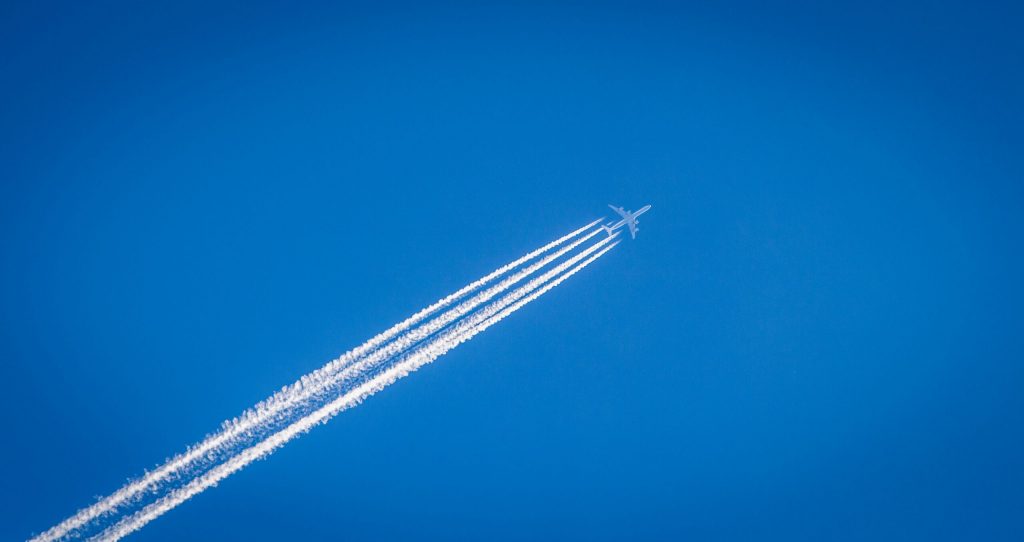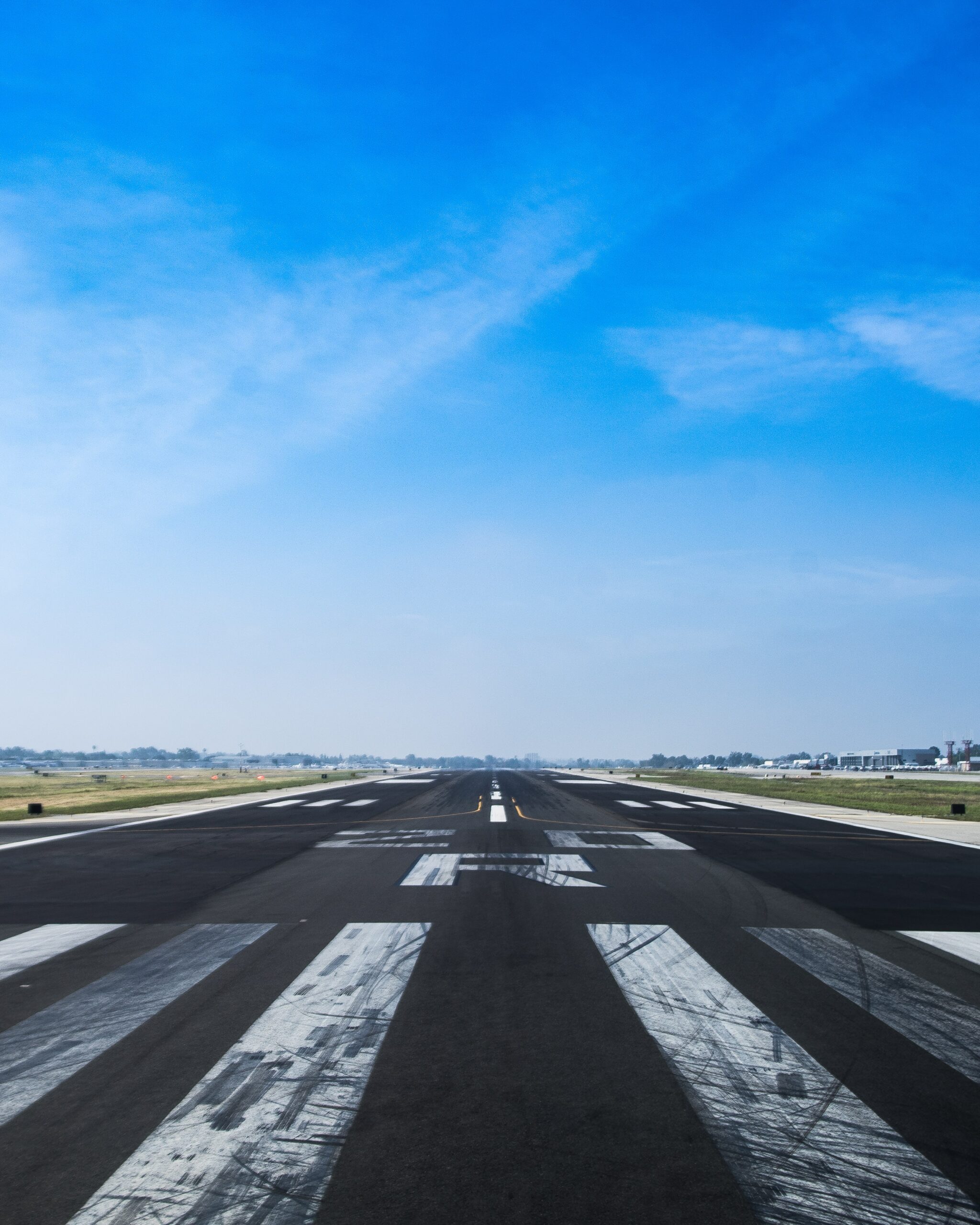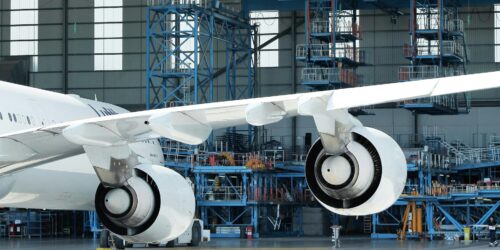Flying Green

Travelling by air is not a green way to travel, period. With all the advantages of air travel and all the changes it has brought to our society there are many more energy-efficient ways to travel. In its simplest form you can look at how much CO2 you contribute when you fly between any two points. But there are other wasteful aspects of air travel. Driving to the airport, paper boarding passes and baggage tags, eating fast food at the airport, plastic packaging on airplane food, wasted uneaten perishable airplane food, and much more. I feel guilty when I think about the amount of CO2 I personally contribute when I travel for work and pleasure. For real change, the industry needs to work collectively towards more renewable energy sources and lower CO2 emissions. Fully electric plans, for example, are a long way off, but hybrid propulsion systems do look more realistic in the relatively nearer future. In the near term, there is the use of alternative fuels and cost-cutting initiatives that also cut down on CO2. One of the biggest expenses for airlines is fuel, so finding ways to reduce fuel usage is a huge cost-saving motivator. I wrote a blog about this a few years ago, Saving Fuel By Going Slow and Losing a Few Olives. The problem with alternative fuels, like biofuel, is cost. Because it is more expensive than regular jet fuel airlines have no incentive to consider it, other than the occasional PR stunt. Until there is a cost advantage to use alternative fuels don’t expect much movement on this.
If you want to travel greener, here are some ideas that can go a long way.
- Public Transit: This is not always available or convenient, but taking public transit to the airport instead of driving can save you money on gas and parking, and reduce your CO2 emissions. In many cities public transit is far more time-efficient than driving or taking a cab. Sometimes you can even substitute public transit for flying all togeather. A huge benefit of working for an airline is cheap travel. Because of its low price, it can seem more desirable than driving or taking the bus. If you are serious about reducing your CO2 emissions, the extra travel time is a small inconvenience.
- Direct Flights: Planes use more fuel at lower altitudes and when high power is needed during take-offs. By choosing a route that is most direct will have a lower CO2 output than a route with connecting flights
- Economy vs. Business: If you choose to travel business or first class you are personally contributing more CO2. This is primarily because of the extra space taken up with fewer people. The fewer people a plane can transport the greater individual CO2 emissions are. It is true that a plane would be more heavier with more people and burn more fuel, but individual CO2 emissions would be less.
- Look At the Metal: If you can, choose an airlines and route that fly on the most fuel efficient aircraft, like the Boeing 787 and Airbus 350. These modern aircraft are far more fuel efficient than almost any other aircraft. The Airbus 220, formally Bombardier C Series, is another ground breaking regional jet for shorter routes that is far more fuel efficient than its competitors.
- Reusable Water Bottles: Carrying water thought security in most countries is not an option, but empty reusable water bottles are ok. More and more airports are installing convenient water fountains and bottle refilling stations. Staying hydrated when you fly is important. At work my airline provides bottled water, but over a full year that is a lot of bottles. If I am at work 200 days a year and get a bottle everyday, that is 200 plastic bottles that I hope get recycled, but many don’t. Different airports in different countries handle garbage differently and many recylables go to the landfill. It’s not always possible, but I try to refill my water bottled a much as possible.
- Hotel Soaps, Towels, & Lights: I spend almost 120+ nights a year in hotels. I know a lot about hotels and know what I like and dislike, but that’s for another post. Most hotels have smalls soaps and shampoo containers in each room. What happens when you check out? They all get tossed in the garbage. There is a soap bar for the sink and the shower, plus there is a shampoo container and conditioner container. Times that by 120+ nights and thats a lot of waste. I tavel with my own soap, and when I open a shanpoo contain I bring it with me until the contain is empty. The good news is many hotel are switching to larger despesor type soaps and shampoos. Check out this NY Times article. I also try use only one towel in the bathroom. Less towel usage equals less laundry. At home we all try to turn unnessary lights off, but in hotels it seems too easy just to leave everything on, even when we leave the room. By taking just a few extra moments to turn the lights off, and even turning the heat down, we can make a big difference.
Reducing our CO2 emissions is a first step in becoming greener, but there are ways to “offset” your emissions. Think of it this way, you have polluted and that pollution has a price. That price is the based on how much it would cost to produce the same energy with no emissions. You can purchase offsets that do things like plants trees or invest in green technology. There is some controversy in buying into these programs as it is hard to evaluate if such investments actually reduce emissions. For example, if a company wants to plant a million trees in Canada and are selling offsets to consumers the question is, are we actually offsetting our emissions if the trees are going to be planted anyway? High quality offset programs with international certifications invest in projects and programs that would not happen without the investment, typically in third world countries where access to funding is limited. I use less.ca when I purchase offsets. They have lots of information plus products that are internationally recognized and audited, such as Gold Standard.
Regardless of your motivation, even small changes can make big differences. The more you change the more routine it will feel. It will also better place you for more compulsory changes our society may have to impose to reduce our emissions.
Got ideas on how to reduce your emissions on the road, let me know in the comment section below.
Photo by William Hook on Unsplash




